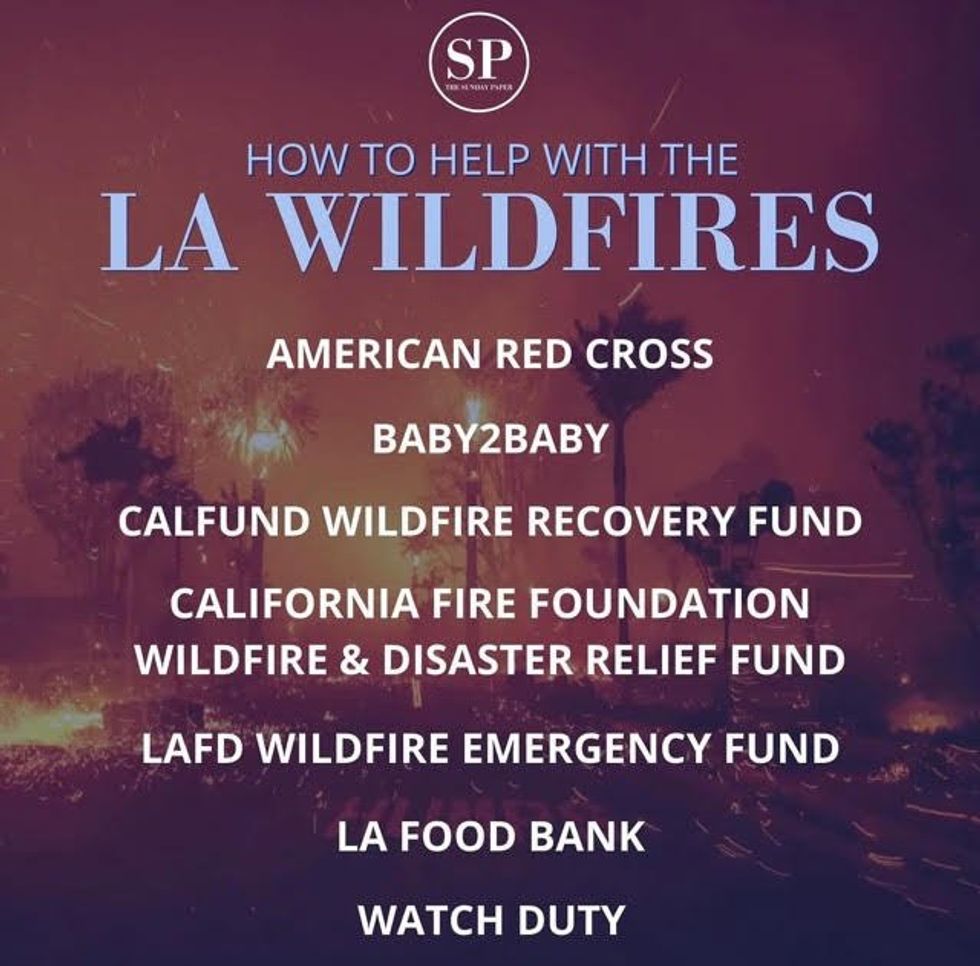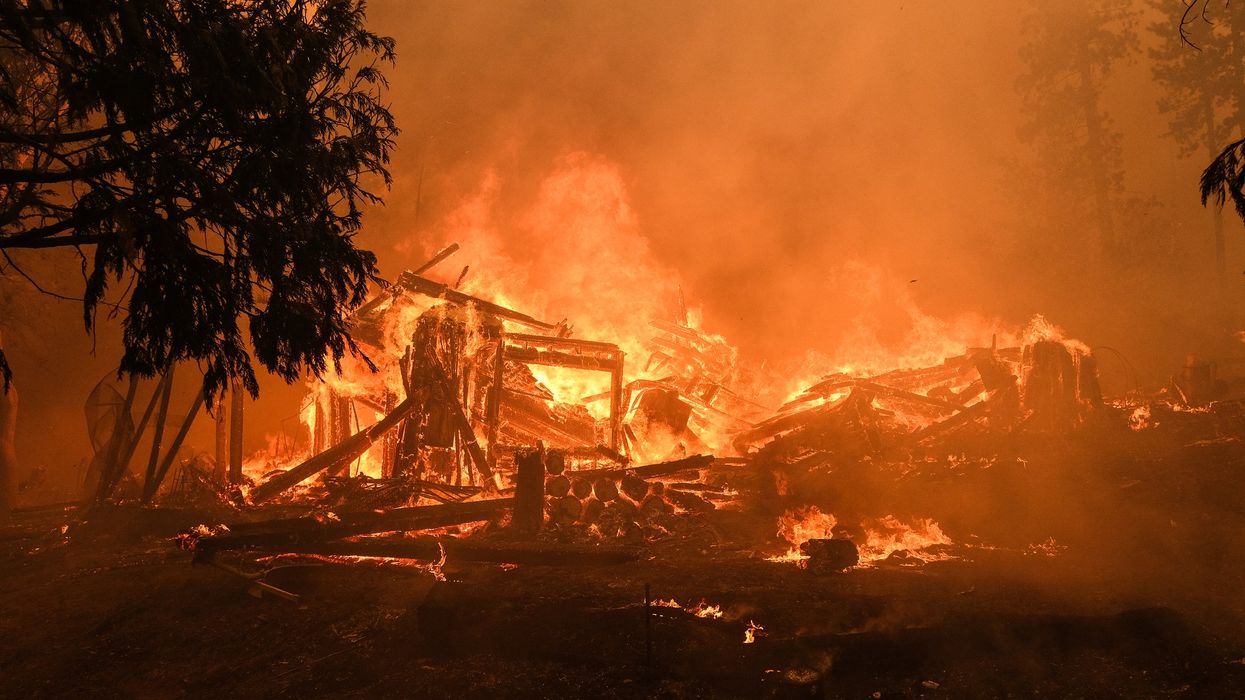The devastation caused by the recent fires in Los Angeles has been heartbreaking. The loss of life and property, and the grief that so many are experiencing, remind us of the vulnerability of everything in life.
Nothing is permanent. There are no guarantees for tomorrow. We are all so fragile and that fragility so often leads to breaking. And it hurts.
If there's a bright spot, it's this: the devastation has unleashed enormous generosity and solidarity of people in Los Angeles and around the country toward those who are most wounded by the devastation.
First responders are risking their lives, friends are taking each other into their homes, volunteers are bringing food and clothing to those most affected, and people from around the country and around the world are giving. Pain experienced by so many is being met by love given in equal measure.
My brother told me he'd heard from dozens of friends from long ago who he'd thought had forgotten about him. As devastating as it is to watch the destruction, the silver lining is to watch human beings respond with so much compassion.
As hard as it is to make sense of all this, we're blessed by a voice of help coming to us at exactly the right moment. Just this week, our nation's Surgeon General, Dr. Vivek Murthy, published his final prescription for healing our country, and it couldn't be more timely. "Choose community," Dr. Murthy writes, because "relationships, service and purpose create an ecosystem of meaning and belonging that are essential for fulfillment."
In short, the Surgeon General is telling us that if we want to be healthy and heal, we need to strengthen the work of building community, and we have to root that work in the transformative power of love and connection. It's as though Dr. Murthy wrote this letter for all of us right now.
Like many of you, I’ve been looking for ways to help, to offer support, and to find meaning in a tragedy that defies understanding.
For those of you wanting to help those impacted by the fires, my sister Maria and her team have compiled this list of vetted organizations that need support.

For me, this tragedy hits close to home. Several of my own family members have been directly affected—my brother, my sister, my daughter, my nieces and nephews, and several cousins have all been forced from their homes, uncertain about what lies ahead. I know I’m not alone in this, as so many of you are also grappling with the enormity of what has happened.
In this spirit of community, I know you all join me in working on how we can foster hope and healing—not only for those on the front lines but for all of us as we navigate this crisis and all the stress of these times. We can all do our part: make the extra call; let others know you care; offer whatever gifts you have; and give whatever you can. Nothing is too small and everything counts.
Above all, commit to strengthening the bonds that bind us together as family, as people of faith, as country. If ever the message was clear, it's clear now: community isn't just a vague idea or a long-term goal: it's survival.
In the spirit of community and love,
Tim
Tim Shriver is the chairman of Special Olympics, founder and CEO of UNITE, and co-creator of the Dignity Index. Visit dignity.us to join Tim’s newsletter mailing.




















Trump & Hegseth gave Mark Kelly a huge 2028 gift